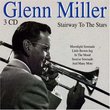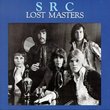| All Artists: Gottfried Heinrich Stolzel, Ludger Remy, Telemann-Kammerorchester, Constanze Backes, Dorothee Mields [or Blotsky-Mields], Andreas Post, Knut Schoch Title: Gottfried Heintich Stölzel: Brockes Passion Members Wishing: 0 Total Copies: 0 Label: Cpo Records Release Date: 5/12/1998 Genre: Classical Styles: Opera & Classical Vocal, Historical Periods, Baroque (c.1600-1750), Sacred & Religious Number of Discs: 2 SwapaCD Credits: 2 UPC: 761203956029 |
Search - Gottfried Heinrich Stolzel, Ludger Remy, Telemann-Kammerorchester :: Gottfried Heintich Stölzel: Brockes Passion
 | Gottfried Heinrich Stolzel, Ludger Remy, Telemann-Kammerorchester Gottfried Heintich Stölzel: Brockes Passion Genre: Classical
|
Larger Image |
CD DetailsSimilar CDs
|
CD ReviewsBeautiful, but not bach mmuizelaar | Richmond, VA USA | 12/20/2000 (4 out of 5 stars) "From the opening chorus, you are immediately taken away by the beauty of this passion. The recitatives are superb and move brisquely. Overall, the music is very heartfelt and the intersperion of recitative, arias, chorales, and turbae choruses is splendid. However, don't expect Bach-like longer, contemplative arias- most arias are only about 2 minutes and many are not da capo. Nonetheless, almost every aria is sublime. Wonderful recording of an unjustly neglected work and composer" Intimate agony tertius3 | MI United States | 10/16/2001 (3 out of 5 stars) "It is clear that the conductor of this 1725 work, Ludger Remy, considers this short Passion a revelation, "philosophizing is nothing other than a preparation for death" (de Montaigne). Remy has disinterred it from Stoelzel's lifetime corpus of seven passions and 900(!) cantatas and premiered it here. This passion is based on a once-famous original (non-liturgical) text by the Hamburg poet and burger B. H. Brockes. As its title states, it is strongly, nay graphically, focused on the "Suffering and Death of Jesus." The text emphasizes bloody rites of whipping, thorning, beating, and crucifying, and bloody feelings about the blood sacrifice of Jesus: "my entrails screech on hot coals" (Peter), "rend my flesh, crush my bones...the world is fit for flames" (Judas). The point of this Pietistic text and frightful imagery may have been to so thoroughly terrify the congregation that only Jesus could truly rescue them, for all else collapses in utter betrayal and failure. The recording consists of 62 tracked sections, usually aria or recitative with a gradual increase in the frequency of choruses as the angry lamentations peak. While there is a strong musical sensitivity to the text, it is of its period and one will not hear the chromatic agony of a late Romantic work, for which the intimately apocalyptic text seems to cry out. (I have not heard other composer's versions of this text, like Händel's.) Over the horrendous events described in the text the music glides with light textures due to the small numbers of participants; the scale is personal and in-your-face throughout. Listening to this music before and then after following the text is a different experience. The German text is somewhat unusual, its strokes and equal-signs following 1725 text conventions rather than indicating something specifically musical. The German text is given with English translation, with the background notes on Stoelzel in French as well. The only illustrations in the 84 p. booklet are of the conductor and the title page in Gothic. I am having trouble liking the music under the fierce onslaught of the gross and accusatory tone of the text ("Do you foam, you scum of the world?" CD2:16)."
|

 Track Listings (26) - Disc #1
Track Listings (26) - Disc #1


